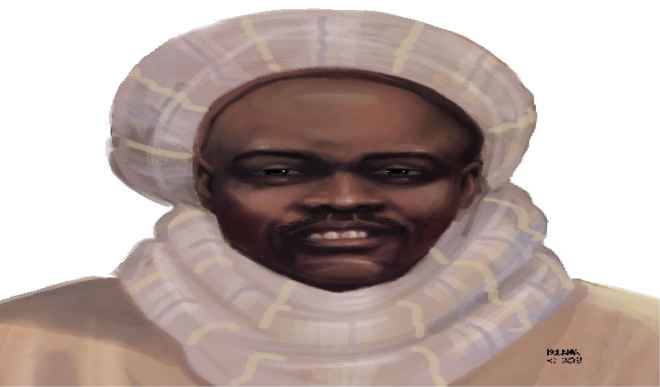Remembering the first Galadima of Zuru
It is often said, quoting that eternal bard William Shakespeare, that the evil that men do lives after them while the good is often interred with them. But the realities of our times have shown that both the evil and the good people do while alive are often remembered well after they have passed on. […]


It is often said, quoting that eternal bard William Shakespeare, that the evil that men do lives after them while the good is often interred with them. But the realities of our times have shown that both the evil and the good people do while alive are often remembered well after they have passed on. This was clearly evident when the people of Mahuta town of Fakai Local Government of Kebbi State in April 2018 chose to honour posthumously worthy sons and daughters of the land, among who was my late father, Alhaji Muhammad Hunde Mahuta, the first Galadima of Zuru Emirate of Kebbi State.
Over 40 years since his demise in 1977, his life, works, deeds and contributions to his community were brought out for appreciation at the honours ceremony held in the town of Mahuta. The occasion was grand and it cast my mind back to that hardly remembered day when the news of his death came from Sokoto, where he died and was interred. At that time I was barely four years old, still reveling in childhood innocence, unknown to me and some of my siblings, even with the sorrow in the air, that a great father had passed on.
Alhaji Muhammad Hunde Mahuta was born in Mahuta town to the family of Hunde, a renowned hunter and his wife, Dumba, in the year 1885. Like any other child of that era, he only attended an Islamic school and was interested in his father’s vocation, hunting and farming, following his father to numerous hunting and farming expeditions.
At the age of 29, the young Muhammad joined the Army during the First World War and fought gallantly. Later in 1940, he was sent to Burma during the Second World War where he fought on the side of the Allied Forces against Germany. In that war, he was decorated with numerous medals such as the Military Victory Medal, the African Star Medal, the African Service Medal and the Burma Campaign Medal which were awarded to gallant soldiers who served and fought diligently during the war.
Muhammed Mahuta, before retiring from the Army, undertook a long distance course to study concrete Hand-Dug Well Engineering, bagging a certificate in that regard. He retired from the Army as a Sergeant Major and was employed in the Northern Nigerian Public Service and posted to Maiduguri to work as a concrete hand-dug well engineer whose responsibility was to oversee the construction of what was then the major source of water supply. After three years in Maiduguri, Muhammad Mahuta was posted to Bauchi, before going to Kano for the same assignment and finally requested to return home to work in his immediate environment, Zuru. The results of his work are still visible in numerous areas of Zuru Centre, old Zuru Market and in front of Zuru Prison while the wells (Kwakwara) he supervised the digging are still very much in service, providing people of such areas with drinking water.
He left the Northern Government Service and got employed as a Community Mobilizer with the Department of Community Development of the then Native Authority, during which he relocated to the present Zuru Centre Area and built his abode, thereby becoming the first person to live in the area.
In 1946, when the then Emir of Zuru, Muhammad Sani Dantudu, was re-organising the affairs of the emirate and inserting new innovations, Muhammad Hunde Mahuta was found suitable for one of the most powerful traditional titles in Zuru and he was subsequently turbaned as the first Galadima of Zuru. He thus became the most senior counselor in the emir’s council and in the entire emirate and was put in charge of security and water supply. In that capacity as the Galadima of Zuru and a council member of the emirate, he was delegated to oversee some districts as a sole administrator, satisfying the trust and confidence the then emir reposed in him.
His courage and determination knew no bounds, earning him so many accolades and pleasant testimonies from his peers, those under him and all he came in contact with. He was a father figure to his children, standing up for them as a pillar, a loving husband to his wives, supporting them to build a happy home worthy of emulation by others. He opened his doors for the downtrodden and the poor, accommodating hundreds of visitors in his residence, those who came from far and near to earn a living in Zuru, people such as the Yan garuwas, Malaman Zaure and shoe-makers.
At the time of his death in 1977, Galadima Muhammad was 92 years old, leaving behind three wives and 17 children, notable among them were Hajiya Kulu Galadima, Hajiya Hadiza Galadima, Alhaji Garba Galadima, Alkali Aliyu, Alhaji Shehu, Sa’a, Sani ,Hamza, Abdullahi, Halima, Indo, Amina and others.
The first Galadima Zuru’s living children (including myself), grandchildren and great grandchildren were all there at the Mahuta District honouring the event, reflecting on his life well lived for the people and praying to Allah for the continued repose of his soul.
Galadima is of the National Council for Arts and Culture, Abuja.
